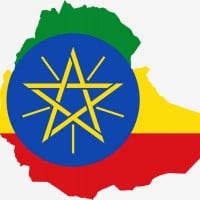Top 10 Countries with the Strangest Marriage Habits
The customs and traditions of each country differ according to their culture and surrounding environment. If you are confused about where and how to celebrate your wedding, here is a list of the strangest countries to celebrate these decrees. India, officially the Republic of India, is a country in South Asia. It is the seventh-largest country by area, the second-most populous country (with over 1.2 billion people), and the most populous democracy in the world. Its capital is New Delhi. Some other major cities are Mumbai, Chennai, and Ahemdabad... read more
India, officially the Republic of India, is a country in South Asia. It is the seventh-largest country by area, the second-most populous country (with over 1.2 billion people), and the most populous democracy in the world. Its capital is New Delhi. Some other major cities are Mumbai, Chennai, and Ahemdabad... read more As an Indian, I'm both proud and a little embarrassed at the same time.
In Hindu marriages, there are some laws from which one cannot deviate. For example, there are restrictions on speech between boys and girls since childhood or birth, and these laws prevent overlapping of the layers identified by the gods. It is permitted for a man from a higher class to marry a girl from a lower class, but the opposite is not allowed. The law allows the upper classes to do whatever they want, but the lower classes are restricted.
Hindu weddings are grand events, held in large marquees where Indian songs are played by registered singers. Relatives and acquaintances offer Madawat and Aalacod bracelets, and Atabguen is applied to their hands with henna. Girls wear luxurious Sari Hariri. The bride stays at home, where her mother and sisters prepare her for the groom's arrival. After showering, her hands and feet are coated with henna. Her mother wraps her in a sari, applies makeup, and then adorns her with earrings, nose rings, and anklets.
The groom arrives on a horse, wearing special attire with a turban adorned with emeralds and peacock feathers. A small child sits in front of him as a symbol of the continuation of the offspring. Leading the procession is an orchestra, and in front of the horse, some of the groom's relatives and companions dance, slowly approaching the pavilion. The groom then sits at a special table, where the bride's mother applies henna to his forehead.
Next, the Women Guard offers him a "coconut" from the bride’s side as proof of the bride's virginity, along with a package of money and other simple gifts. The bride, showing obedience, approaches the groom and gives him a wreath of flowers, receiving another wreath in return. This is then linked to the groom's turban, which spins, causing a fire in the center of the terrace. In the meantime, a priest mutters prayers, reads sacred texts, and sprinkles holy water on the couple.
Afterward, guests are served food and coffee while enjoying a... more
 Ethiopia, officially known as the Federal Democratic Republic of Ethiopia, is a sovereign state located in the Horn of Africa.
Ethiopia, officially known as the Federal Democratic Republic of Ethiopia, is a sovereign state located in the Horn of Africa. In Ethiopia, a prominent marriage custom common to most communities involves selecting a girl from outside the family after familial consultation. The groom's parents bring the dowry and the net, while the bride's family prepares the marital home and provides a sum of money to the groom, locally called "the dwarf". These weddings usually have celebrations lasting no more than three days, but the bride's friends continue offering gifts for 12 days. During this period, the bride stays in her room and does not engage in household chores.
In areas such as Harar, Bali, and the Ethiopian Cemetery, generosity dominates marriage customs. After the engagement is announced in the presence of Sheikhs and tribes, the groom sends a dairy cow to his bride's house, prompting her mother to begin marriage preparations. The groom must serve the bride's father, assisting with tasks such as agriculture and grazing. Meanwhile, the bride's mother stores ghee and processes honey and crushed wheat. These are given to the bride after the completion of the wedding ceremony or the so-called "whip day".
The wedding feast is presented to the attendees at special tables, but the groom only eats from a table prepared by the bride's mother, as a sign of her approval. He is also given a pot of milk to share with his friends. In return, he gives money to the bride's aunt. In some Ethiopian societies where love is forbidden, forced marriage is prevalent. This practice is prohibited by religious laws and overlooked by tribal courts.
"Kidnapped, run away, and married" are three words prevalent in some Ethiopian tribes. A man, with the help of friends, rents a car and stalks a girl he is interested in. He abducts her from the street and takes her to his parents' house. Then, a delegation from his family visits the girl's family. The discussions continue until a member of her family arrives and determines whether the family and the bride agree to the... more
 Kyrgyzstan, officially the Kyrgyz Republic, formerly known as Kirghizia, is a landlocked country located in Central Asia.
Kyrgyzstan, officially the Kyrgyz Republic, formerly known as Kirghizia, is a landlocked country located in Central Asia.Kyrgyzstan is bordered by Kazakhstan to the north, Uzbekistan to the west, Tajikistan to the south, and China to the east. Its capital and largest city is Bishkek. Ethnic... read more
 Turkey, officially the Republic of Turkey, is a transcontinental country in Eurasia, mainly in Anatolia in Western Asia, with a smaller portion on the Balkan peninsula in Southeast Europe. Turkey is bordered by eight countries with Greece and Bulgaria to the northwest; Georgia to the northeast; Armenia,... read more
Turkey, officially the Republic of Turkey, is a transcontinental country in Eurasia, mainly in Anatolia in Western Asia, with a smaller portion on the Balkan peninsula in Southeast Europe. Turkey is bordered by eight countries with Greece and Bulgaria to the northwest; Georgia to the northeast; Armenia,... read more The basic steps of marriage in Turkey begin with the tabla. The tabla means that the young man, accompanied by some members of his family, goes to the girl's house to ask for her hand in marriage on one of two days of the week, Sunday and Thursday. After the tabla comes the drum, which follows what is known as the sermon. In the sermon, the engagement rings are exchanged between the bride and the groom. The bride serves coffee to the guests. However, there's a unique custom on this day where the bride offers the groom coffee with salt instead of sugar, in the belief that this promotes good skin.
 Indonesia, officially the Republic of Indonesia, is a country in Southeast Asia. Ruled by the Dutch for over 300 years and Japan for 3 years and 6 months, the country gained independence in 1945, or exactly in 17th August 1945. Jakarta is the capital city, located in the island of Java. Major languages... read more
Indonesia, officially the Republic of Indonesia, is a country in Southeast Asia. Ruled by the Dutch for over 300 years and Japan for 3 years and 6 months, the country gained independence in 1945, or exactly in 17th August 1945. Jakarta is the capital city, located in the island of Java. Major languages... read more The newlyweds in Indonesia often suffer as they endeavor to complete their marriage ceremonies, due to the unique marriage customs and traditions practiced by the Tidong tribe, most members of which have settled in Sandakan, Malaysia.
The bride is not permitted to leave the house during the engagement period, regardless of its length. If the groom is late on his wedding day, he must pay a fine or purchase gold jewelry as a penalty. Additionally, the groom places a thick curtain between himself and the bride. This curtain is only raised when the groom is singing a number of romantic songs. After he finishes, the curtain is lifted so that the couple can sit together.
This tradition also prohibits the bride and groom from leaving the house for three full days, based on a firm belief that if this is not adhered to, it will result in an unsuccessful marriage. It's believed this could bring misfortune and possibly cause the death of one of their children at a young age, or end their marital life through the early death of one of the partners, or even lead to failure or betrayal.
Therefore, the spouses are under strict observation for three days and nights and are provided with very limited quantities of food and drink, enabling them to complete the prescribed period. After the conclusion of all these customs and traditions, the couple is allowed to resume their normal lives.
 Somalia, officially the Federal Republic of Somalia, is a country in the Horn of Africa. The country is bordered by Ethiopia to the west, Djibouti to the northwest, the Gulf of Aden to the north, the Indian Ocean to the east, and Kenya to the southwest. Somalia has the longest coastline on Africa's... read more
Somalia, officially the Federal Republic of Somalia, is a country in the Horn of Africa. The country is bordered by Ethiopia to the west, Djibouti to the northwest, the Gulf of Aden to the north, the Indian Ocean to the east, and Kenya to the southwest. Somalia has the longest coastline on Africa's... read more In Somalia, one of the harsher customs involves the bridegroom striking his bride on the wedding day in front of the audience. This is done to announce to everyone that he holds authority in their household.
 Egypt, officially the Arab Republic of Egypt, is a transcontinental country spanning the northeast corner of Africa and southwest corner of Asia via a land bridge formed by the Sinai Peninsula. It is bordered by the Mediterranean Sea to the north, the Gaza Strip (Palestine) and Israel to the northeast,... read more
Egypt, officially the Arab Republic of Egypt, is a transcontinental country spanning the northeast corner of Africa and southwest corner of Asia via a land bridge formed by the Sinai Peninsula. It is bordered by the Mediterranean Sea to the north, the Gaza Strip (Palestine) and Israel to the northeast,... read more Egyptian customs and traditions in marriage are distinct, with Egyptians adhering to traditions inherited from their ancient ancestors. One of these traditions is that the beginning of marriage must start with an engagement ceremony known as debauchery. The engagement ring must be worn on the left hand, and after the marriage, it remains on the left hand. It is also customary for the Egyptians to have a henna night before the wedding night, a night arranged by the bride without the groom being present. This tradition of henna night dates back to the time of Isis, Osiris, and Ra. Additionally, it is customary for Egyptian brides to wear a white robe.

The bride swims in a pool of water, completely naked, in front of a group of men. If someone offers her clothes and she accepts and dons them, he becomes her husband in front of everyone.
 Brazil, officially the Federative Republic of Brazil, is the largest country in both South America and Latin America. At 8.5 million square kilometers (3,300,000 sq mi) and with over 214 million people, Brazil is the world's fifth-largest country by area and the sixth most populous. Its capital is Brasília,... read more
Brazil, officially the Federative Republic of Brazil, is the largest country in both South America and Latin America. At 8.5 million square kilometers (3,300,000 sq mi) and with over 214 million people, Brazil is the world's fifth-largest country by area and the sixth most populous. Its capital is Brasília,... read more Anthropologists received a "big shock" upon discovering an Amazonian tribe with a peculiar marriage ritual, where women resort to marrying their first husbands in unconventional ways. In a remote area called Val de Javari in Brazil, the story of the Dababas tribe surfaced after an expedition led by Dr. Tyler Lomis of the São Paulo Center for Sex Studies. Dr. Lomis lost contact with one of her colleagues under strange circumstances during a trip to study the customs and traditions of this isolated tribe. After three days of exhaustive research, the explorers found the remains of the colleague who, according to his new wife, made for "a delicious meal."
The anthropologists and their guides were surrounded by a group of women from the Dababas tribe, threatening them with spears and bayonets. The scientists avoided meeting the fate of their colleague by repeatedly offering gifts and serving the tribal women. Upon their return from the area, the survivors disclosed that women in the tribe acquire their husbands by kidnapping them from competing tribes and also by using the children of their female tribal peers. Tribal women have the power to allure even the most resistant men, fearing for their lives. However, these men eventually become a source of appetite after spending the "night of life" in a marriage that ends in tragedy.
 Japan is an island country in East Asia in the Pacific Ocean. It lies off the eastern coast of the Asia Mainland (east of China, Korea, Russia) and stretching from the Sea of Okhotsk in the north to the East China Sea and near Taiwan in the southwest... read more
Japan is an island country in East Asia in the Pacific Ocean. It lies off the eastern coast of the Asia Mainland (east of China, Korea, Russia) and stretching from the Sea of Okhotsk in the north to the East China Sea and near Taiwan in the southwest... read more The wedding ceremony in Japan is performed by the bride and her relatives, all clad in white from head to toe. This symbolizes her status as a virgin bride. The bride dresses in a Japanese kimono and wears a headdress of the same color, adorned with the so-called "horns of jealousy". These signify her feelings towards the mother of the groom and serve as an announcement to her husband that she intends to be a good and obedient wife. As for the ceremony that each couple must perform to declare their union as one entity, they must share a drink together and thus become a couple.
 Greenland is an island country part of the Kingdom of Denmark. It is located between the Arctic and Atlantic oceans, east of the Canadian Arctic Archipelago. Greenland is the world's largest island, it is one of the three constituent countries that form the Kingdom of Denmark, along with Denmark and... read more
Greenland is an island country part of the Kingdom of Denmark. It is located between the Arctic and Atlantic oceans, east of the Canadian Arctic Archipelago. Greenland is the world's largest island, it is one of the three constituent countries that form the Kingdom of Denmark, along with Denmark and... read more In Eskimo marriage rituals, the bridegroom smells the bride. If he finds her scent appealing, he marries her. If not, he leaves. A man in Eskimo culture has the right to share his wife with his neighbor and has the absolute freedom to lend his wife to his single friend as evidence of his affection for him.